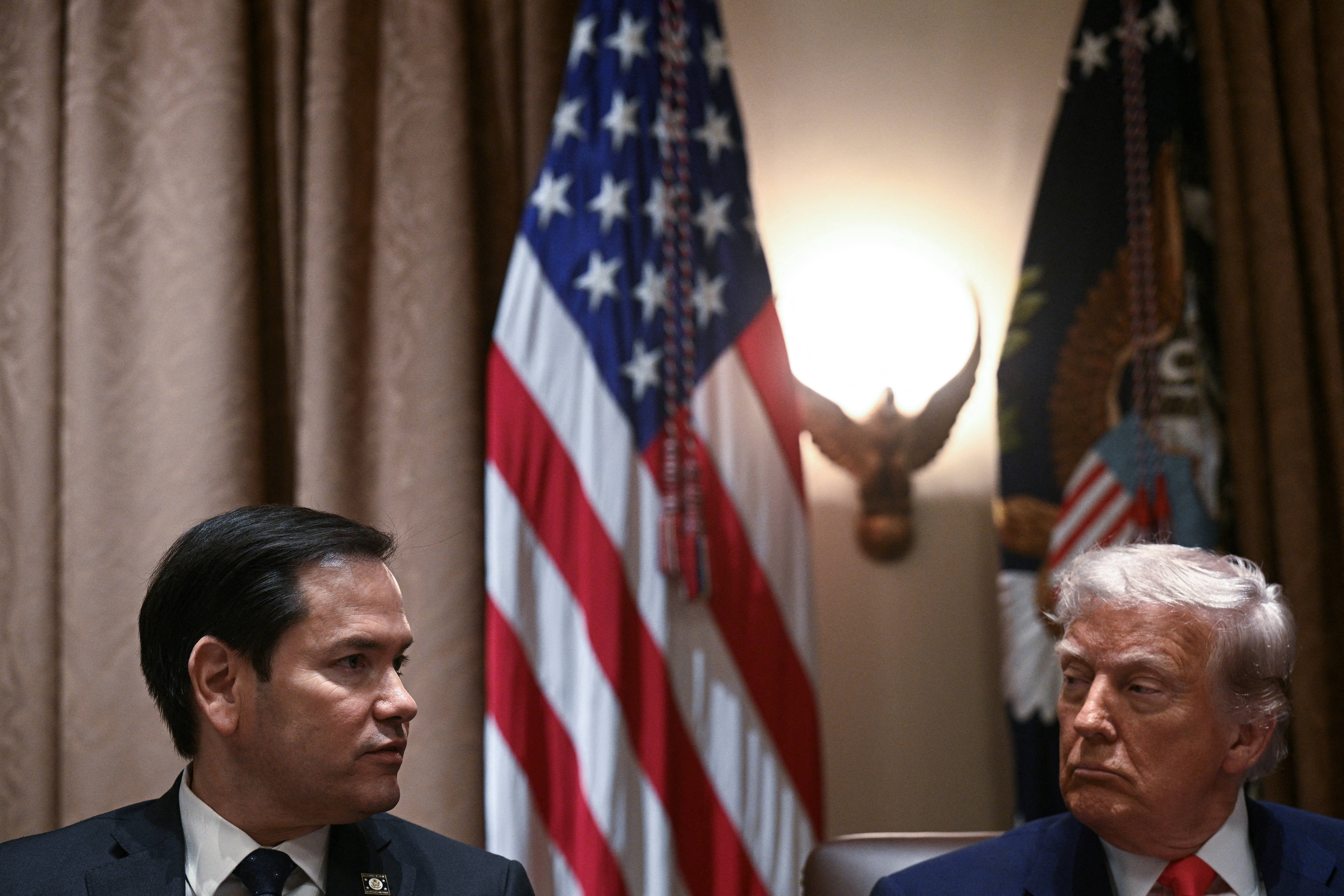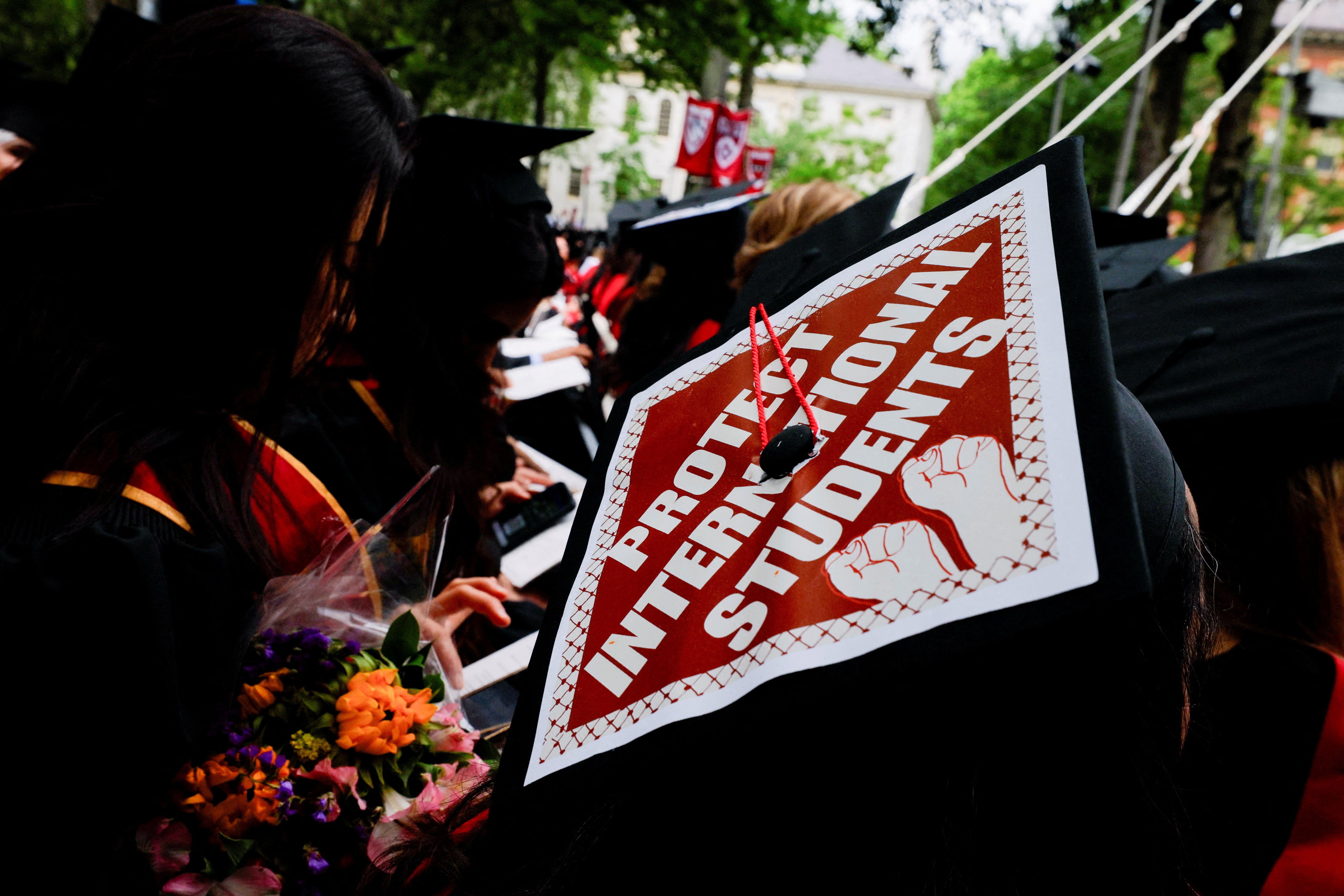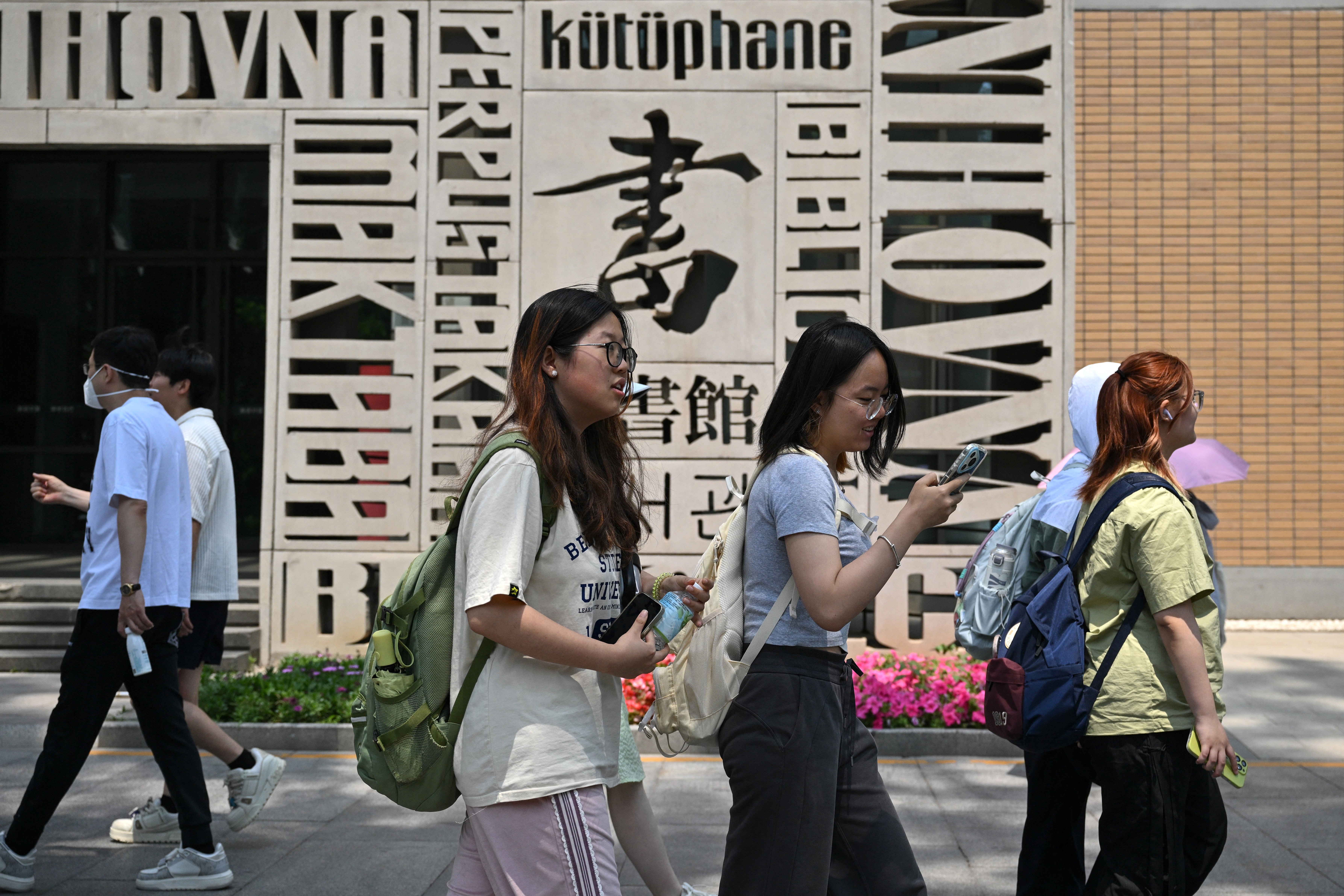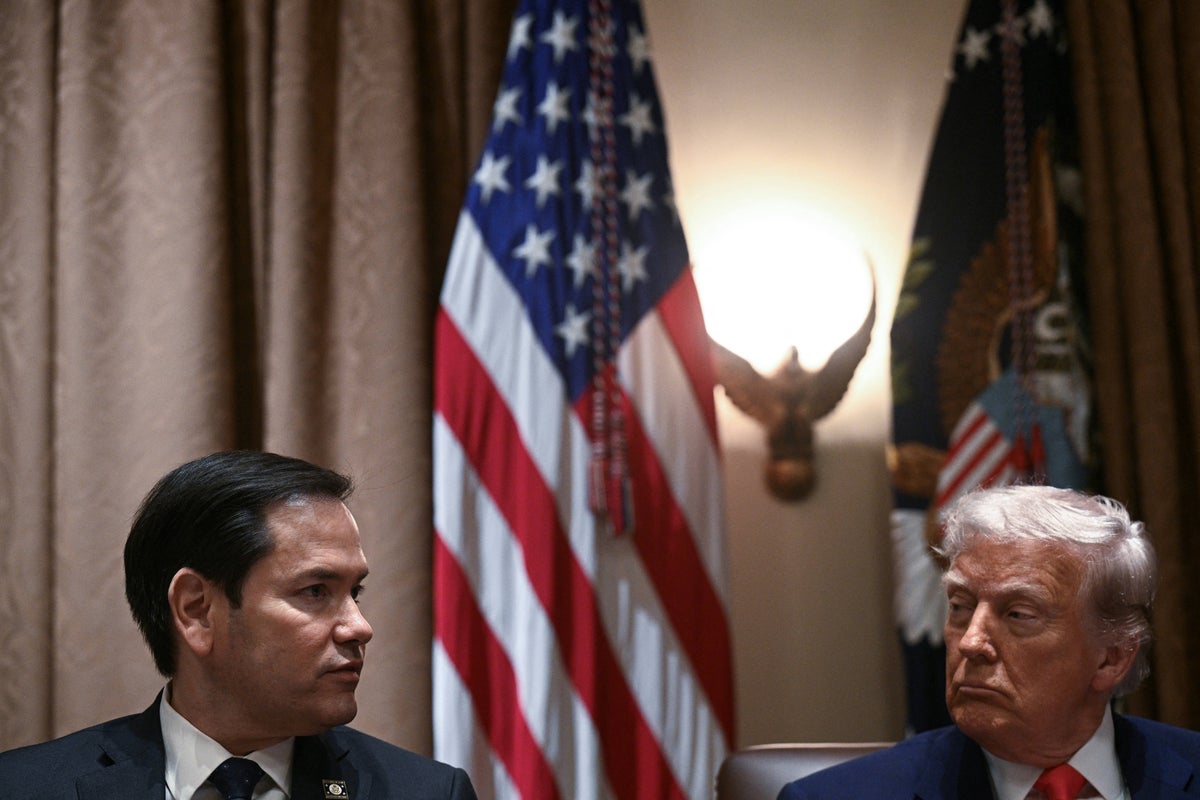Secretary of State Marco Rubio plans to “aggressively revoke” Chinese student visas, targeting students with “connections to the Chinese Communist Party” and those who are “studying in critical fields.”
His two-sentence announcement on Wednesday spared any details explaining how the administration plans to do any of that — blindsiding universities and foreign students now scrambling for guidance about what comes next.
But officials won’t publicly say how they’re deciding whether they believe students are connected to the country’s ruling party or what those “critical fields” of study even are.
“We don’t give details about what our methods are,” State Department spokesperson Tammy Bruce told reporters Thursday.
“Giving away the nature of how we choose to do things” could “give up our hand” and undermine national security, she added.

The State Department says it’s scrutinizing China’s “exploitation of universities” including “theft of research, intellectual property and technologies” exported to students’ home countries, according to Bruce.
“Everyone who is here on a visa has to recognize … that America takes their visas seriously,” she said. “Vetting is not a one-time process, it’s continuing. And if things happen — you get arrested, if there’s some kind of an issue — it’s probably going to be seen at some point.”
Chinese student visa holders “must recognize” that the Trump administration is “taking our national security seriously,” she added.
“And we are looking at their visas, and if everything’s fine, terrific, but that will be a vetting that certainly continues and it’s important clearly to the administration,” she said.
Rubio’s announcement on Wednesday said the State Department will work with the Department of Homeland Security to “aggressively revoke visas for Chinese students, including those with connections to the Chinese Communist Party or studying in critical fields.”
“We will also revise visa criteria to enhance scrutiny of all future visa applications from the People’s Republic of China and Hong Kong,” he added.

Roughly 277,000 Chinese students studied in the United States last year, making them the second-largest group of foreign students in the country. Foreign students studying in the U.S. last year contributed approximately $44 billion to the U.S. economy.
The announcement also follows the Trump administration’s attempt to revoke Harvard University’s ability to enroll international students — which has been blocked in court — and Rubio’s order to pause any new appointments for student visas globally.
The administration accused Harvard of “coordinated activity” with China’s ruling party, including “training members of a CCP paramilitary group complicit in the Uyghur genocide.”
Homeland Security Secretary Kristi Noem accused the university of “fostering violence, antisemitism and coordinating with the Chinese Communist Party on its campus.”
“Chinese Communist Party” was emphasized in boldface.
The Trump administration has launched what critics argue is a politically motivated effort to bend universities and institutions to his ideological commands, including unprecedented scrutiny, funding threats and the arrests and deportations of foreign students involved in pro-Palestine demonstrations against Israel’s war in Gaza.
Advocacy groups and Democratic lawmakers argue the administration’s latest maneuvers escalate a years-long campaign of xenophobia that now risks a serious brain drain in the U.S.
“The wholesale revocation of student visas based on national origin — and without an investigation — is xenophobic and wrong,” stated the Congressional Asian Pacific American Caucus. “Turning these students away — many of whom simply wish to learn in a free and democratic society — is not just shortsighted, but a betrayal of our values.”

Rubio’s “sweeping policies” targeting students based on their country of origin and field of study “mark a dangerous escalation in xenophobic rhetoric and risk undermining America’s global leadership in science, research, and innovation,” according to the Asian American Scholar Forum.
“This policy threatens to dismantle the international talent pipeline that has long fueled American innovation and excellence,” according to the group’s executive director, Gisela Perez Kusakawa.
“Chinese students contribute immensely to our campuses, communities, and economy,” she said. “Treating them with blanket suspicion not only violates principles of fairness, due process, and our democratic values — it sends a chilling message to the world that America no longer welcomes global talent.”
China’s foreign ministry spokesperson Mao Ning also called Rubio’s announcement “politicized and discriminatory.” The action “lays bare the U.S. lie that it upholds so-called freedom and openness,” she said Thursday.
Hong Kong’s Chief Executive John Lee told lawmakers that the city would welcome students who “face unfair treatment” in the United States. “I think this is an opportunity for Hong Kong,” he said Thursday. “We will work with our universities to provide the best support and assistance.”
A widely shared post from Hong Kong’s University of Science and Technology also invited Harvard students to the school to “continue their academic pursuits” following Trump’s threats to international student visas at the Ivy League school.
Average in-state tuition at public colleges and universities is roughly $21,270, and $37,430 for out-of-state. International students pay between $874 and $5,218 more in tuition and fees than out-of-state students, according to a report from the American Council on Education, which represents leaders at 1,600 colleges and universities.
Private tuition rates are thousands of dollars higher.
If Rubio pulls Chinese student visas, the “damage” to the United States could be “enormous and hard to undo,” according to Holger Hestermeyer, Professor of international law at King’s College London.
“Now imagine your family in China coughs up that money. And after two years your visa is pulled,” he wrote. “Refunds? What happens now? And for all future students: is that a risk worth taking?”




